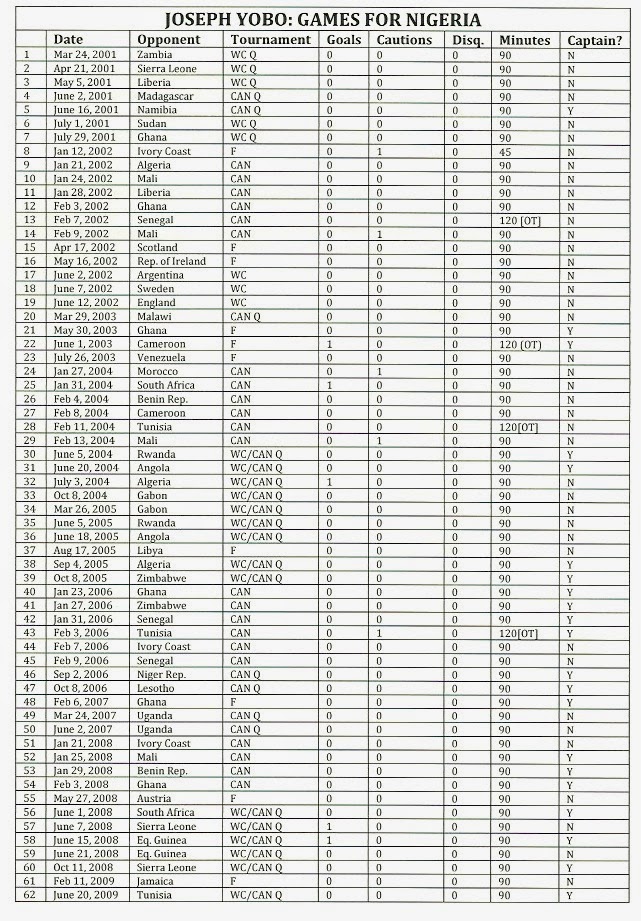The NPFL: Questions Remain on Game Integrity Inspite of Slight Improvement.....
On July 18 of 2013, I ran some numbers to check on the integrity of the elite league in Nigeria (Click here) and they revealed serious questions regarding integrity of the league. The 2013 data compare the league in Nigeria to those in Ghana, South Africa, and England on percentages of home and away wins. Nigeria's percentages were aberrant compared to the three other leagues. Nigerian home teams won 77% of their matches, an incredibly huge percentage. Moreover, home teams were awarded 100% of the penalty kicks most of which came in the second half. Then 2013 was compared to the Nigerian league of 1979. The difference was stark. The 1979 version was statistically similar to other non-Nigerian leagues. In essence, it demonstrates how decadent the Nigerian league has become since the credible years, several decades ago!
Seven years after that 2013 blog, I now use the Sofascore website to check on the same issues. The data are accessed March 1, 2020. This time, I compare the Nigerian league with the 1979 and 2013 data (Table 1); against the Top 5 leagues of the world + the Brasileiro (Table 2); and 18 of its counterparts in Africa (Table 3).
The percentages from Nigeria are so off that they raise major questions about the Nigerian league's integrity. However, there is good news. Compared to 2013, there is an improvement. Less home wins and slightly more away wins. Although, the home wins have declined, they have only slightly gone down. They still stick out like a sore thumb when compared with other leagues' home wins.
Data still demonstrate that Nigeria has 10% points over any of the selected leagues on home wins and over the averages for home wins. Nigeria is also 10% points lower than any other league in away victories and 10% points lower than the averages for away wins. There are a few other aberrations from other leagues as well (see those highlighted in red).
The percentages from Nigeria are so off that they raise major questions about the Nigerian league's integrity. However, there is good news. Compared to 2013, there is an improvement. Less home wins and slightly more away wins. Although, the home wins have declined, they have only slightly gone down. They still stick out like a sore thumb when compared with other leagues' home wins.
Data still demonstrate that Nigeria has 10% points over any of the selected leagues on home wins and over the averages for home wins. Nigeria is also 10% points lower than any other league in away victories and 10% points lower than the averages for away wins. There are a few other aberrations from other leagues as well (see those highlighted in red).
Let us be clear. The Nigerian Federation recognizes this problem in a statement made by its then Secretary General, Fanny Amun, back in 2006 and I quote:
We know match officials are offered money or anything to influence matches
and they can accept it. . . Referees should only pretend to fall for the bait,
but make sure the result doesn't favor those offering the bribe.
It was a shocking statement by someone in authority in Nigerian football and it was widely reported across the world. But acknowledging bribery has a benefit -- it is a realization of a problem. Of course, one cannot like the fact that he encourages the match officials to accept bribes as part of a solution. Nevertheless, the revelation from such a high office means that the Federation realizes the lack of integrity of match results in its elite league.
Obviously, the Federation is improving in terms of erasing the "win-at-home-at-all-cost" strategy that appears syndicated via match officials. The fact that all other leagues fall within 10% points of both averages for home and away wins and that Nigeria's elite league of 1979 also fell within those margins indicate what league result normality should be in statistical terms. Falling far away from that normality, in spite of improvement, underlines the fact that more work is still required.





Good analysis here... Let the league be properly organized all these things will whittle down
ReplyDelete